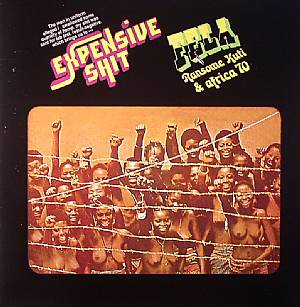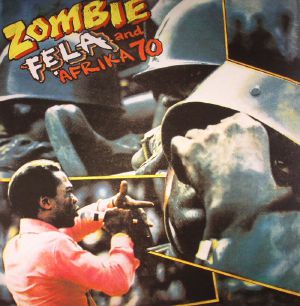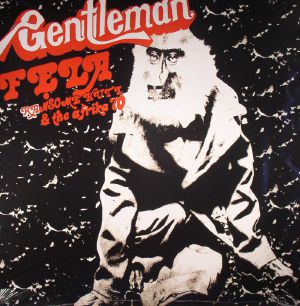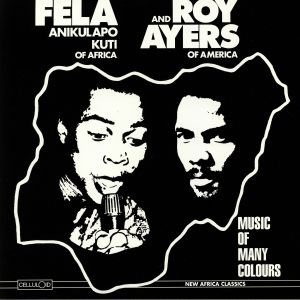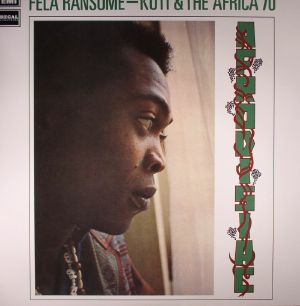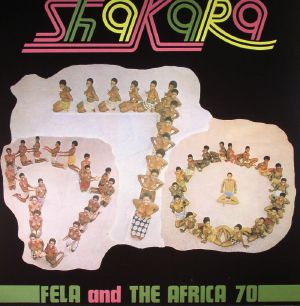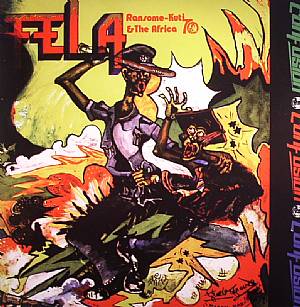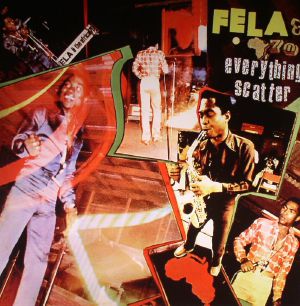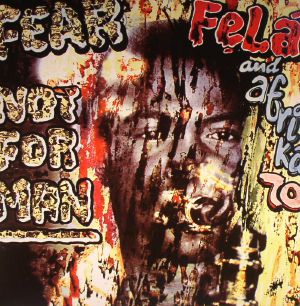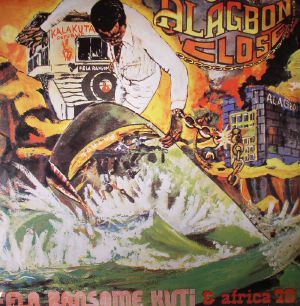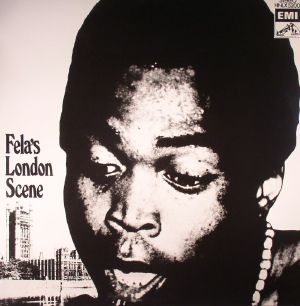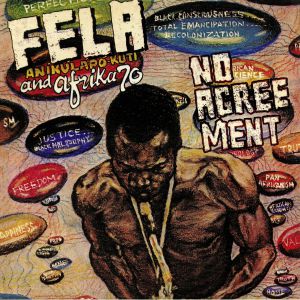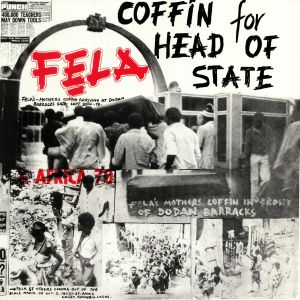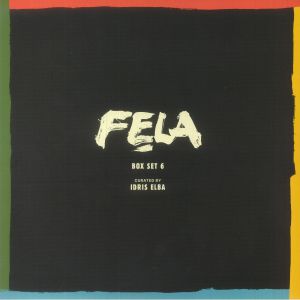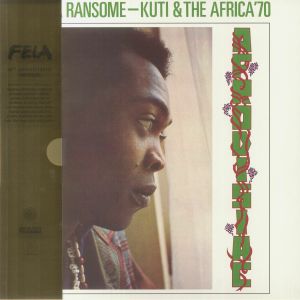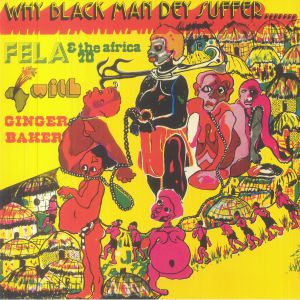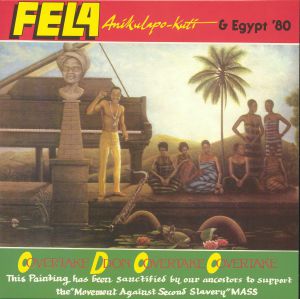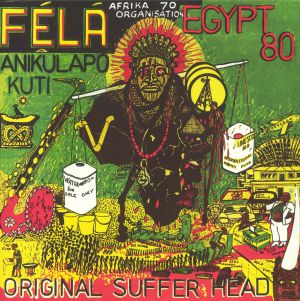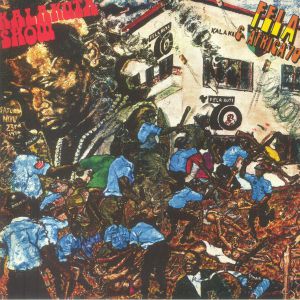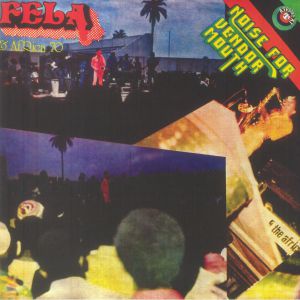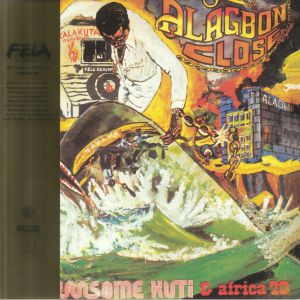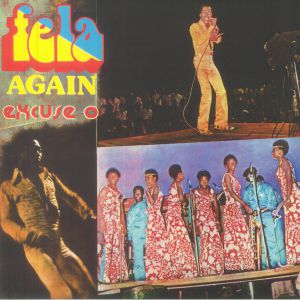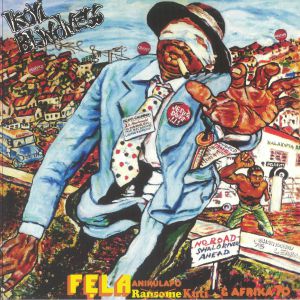Filter
Type
音楽
フォーマット
アーティスト
Featured
リリースタイトル
値段
タグ
Tags: Afrobeat
Products tagged as Afrobeat
1~23/23(ページ1/1)の商品
Review: Destination Nigeria, 1975, Fela and Africa 70 are indelibly locked into a hugely prolific groove with well over 10 albums behind them. Then they release this, an LP comprised solely of two wondrously extended work outs from the troupe. "Expensive Shit" famously tells the tale of Fela's brush with the jaded law while "Water No Get Enemy" speaks - or rather sings - for itself. One of Fela's many notable and hugely influential releases; your collection isn't complete without it.
… Read more in stock $22.16
Played by: Juno Recommends International
in stock $22.16
in stock $22.16
Cat: KFR 11431. Rel: 29 Nov 19
International
in stock $22.16
in stock $21.36
Played by: Aleqs Notal, Juno Recommends International
in stock $21.90
Review: Regarded by many as Fela and The Africa 70's zenith, Confusion is 26 minutes of total Afrofunk immersion delivered over two sides. Gradually building - thanks largely to Tony Allen's dynamic drum work that's as delicate as it is powerful, Fela's dreamy, almost jazz-like keys and a rigid, spine-like rhythm guitar - the groove and narrative is developed with a natural sense of well-instrumented drama. A genuine classic, if your collection isn't blessed with this now is most certainly the time.
… Read more in stock $24.86
Played by: AfroBase (Radio Chart), Afro Beat Foundation
in stock $19.19
Played by: AfroBase (Radio Chart), Aleqs Notal
in stock $22.16
in stock $17.03
Cat: KFR 20041. Rel: 14 Oct 16
International
Review: Rather bizarrely, Fela's London Scene was recorded at Abbey Road Studios in 1971, but didn't get a UK release until the mid 1990s. This is the first time it has appeared on wax since. While the legendary Afrobeat pioneer and his equally revered backing band, Africa '70, may have been in unusual surroundings, the music showcased on the album was pure Nigerian Afrobeat gold. With Fela in fine form on the mic, and Africa '70 providing typically punchy, horn-heavy backing, tracks such as "E Gbe Mi O", "Buy Africa", and "Fight To The Finish" are every bit as good as anything they recorded in their Lagos studio. "Who're You", with its' changes of intensity and gentle progressions, is particularly good.
… Read more in stock $21.36
in stock $21.61
in stock $22.16
Box Set 6: Curated by Idris Elba (7xLP box set + booklet + poster)
Cat: KFR 40081. Rel: 30 Nov 23
International
MOP (Movement Of The People): Political Statement Number 1 (part 1 - LP5: live In Amsterdam) (19:05)
Review: Knitting Factory and Partisan Records share the sixth instalment of the much-anticipated vinyl reissue box-sets from the Fela Kuti catalog. Box #6 is curated by actor, producer, DJ, rapper and singer, Idris Elba (aka. DJ Big Driis). Limited to an edition of 5,000 worldwide, this one includes a 24-page booklet with lyrics, commentaries by Afrobeat historian Chris May, together with some never-before-seen photos, not to mention a 16x24" poster designed by Lemi Ghariokwu, the creative force behind many of Fela's greatest album covers. Previous curators include Chris Martin, Erykah Badu, Ginger Baker, Brian Eno, and Questlove.
… Read more in stock $107.02
Afrodisiac (50th Anniversary Edition) (green & red marbled vinyl 2xLP with obi-strip)
Cat: KFR 20088. Rel: 02 Dec 22
International
Review: 'Afrodisiac' was the renowned Afrobeat pioneer and infamous polygamist Fela Kuti's sexual mating call in album form. At the very prime of his career - which saw to the man marrying and sheltering over ten wives (while also engaging in anti-colonial political activism) - the album came about as a defining statement of Kuti's practice. Its best known song, 'Jeun Ko Ku', is listed by its Pidgin title 'Chop and Quench' on this 50th Anniversary edition. It's a satire about gluttony - "eat and die" in Standard English.
… Read more in stock $28.65
Why Black Men They Suffer (reissue) (translucent yellow vinyl LP)
Cat: KFR 20123. Rel: 25 Jan 24
International
Review: Why Black Man Dey Suffer was a major turning point early in Fela Kuti's career. On his first tour of the US the Afrobeat pioneer was turned to a more political, critical mindset thanks to the guidance of Black-rights activist Sandra Izsadore. When he returned home, he took aim at the injustice and inequality he saw throughout post-colonial Africa, and wrote and recorded this mightily potent album as a result. In some ways it's more measured than he would grow to become, but the power of the music is undeniable. Recorded in 1970, when Tony Allen was still being joined by unlikely collaborator Ginger Baker on the drums, this is a landmark part of a true musical legend, now repressed on translucent yellow vinyl courtesy of Knitting Factory.
… Read more in stock $22.16
Overtake Don Overtake Overtake (reissue) (translucent green vinyl LP)
Cat: KFR 20443. Rel: 22 Feb 24
International
Played by: Juno Recommends International
in stock $22.16
Review: Like so much of his often faultless work, Original Sufferhead by Fela Kuti is a powerful and politically charged album that embodies the essence of Afrobeat. For that reason, it is well deserving of this reissue as it remains relevant in more ways than one all these years after its original release in 1981 with its signature blend of funk, jazz, and traditional African rhythms, coupled with biting social commentary. The album confronts issues of oppression, corruption, and inequality, with Fela's impassioned vocals leading the charge. Each track is a call to action, urging listeners to rise against injustice and oppression. With its infectious grooves and thought-provoking lyrics, this is a timeless listen that continues to inspire and resonate with audiences around the world.
… Read morePlayed by: Juno Recommends International
in stock $22.16
Review: There are a bunch of reissues of classic Fela Kuti albums dropping right now which is always going to be good news for collectors and Afrobeat lovers a like. As was often the case with his music, this album Kalakuta Show from 1976 was a way of him taking revenge on the military regime that attacked and brutalized him two years prior when the police mounted a large scale raid on Kalakuta Republic incoming Fela's own heavily guarded compound. They were the second raids in eight months and left Fela with scalp wounds and a broken arm, and us with this most remarkable musical retort.
… Read morePlayed by: Juno Recommends International
in stock $22.16
Played by: Juno Recommends International
in stock $22.16
Alagbon Close (50th Anniversary Edition) (limited jollof orange vinyl LP with obi-strip)
Cat: KFR 20118. Rel: 10 Oct 24
International
Review: Fela Kuti's Alagbon Close, released in 1974, stands as one of his most powerful Afrobeat statements, criticising police brutality in Nigeria. The title track was inspired by two raids on Fela's home, where police searched for marijuana. After swallowing a planted joint, Fela was detained at Alagbon Close, the headquarters of Nigeria's Criminal Investigation Department, for three days while police waited for evidence. His cellmates, in what became known as the Kalakuta Republic, helped Fela escape prosecution. Fela's lyrics denounce the arrogance of the police, declaring that wearing a uniform doesn't place one above the law. The album also marked the beginning of his collaboration with artist Ghariokwu Lemi, whose iconic cover art became synonymous with Afrobeat. Recorded at the A.R.C. Studios, the album is fueled by tight polyrhythms and fiery organ and horn sections, with Fela's sharp political commentary at the forefront. On Side-2, 'I No Get Eye For Back', offers a more groove-driven, mostly instrumental track, showing the collective talents of Africa 70. Together, these tracks solidify Alagbon Close as a timeless work of rebellion and musical innovation.
… Read morePlayed by: Juno Recommends International
in stock $18.25
Played by: Juno Recommends International
in stock $22.16
Played by: Juno Recommends International
in stock $22.16
1~23/23(ページ1/1)の商品

 USD
USD





